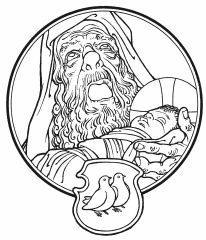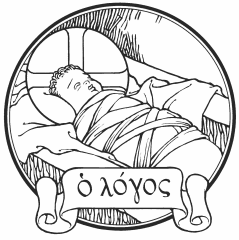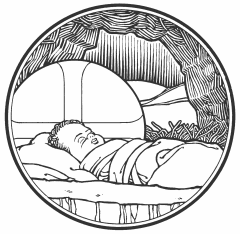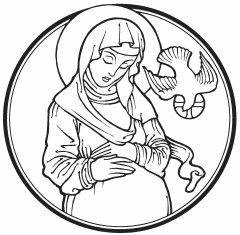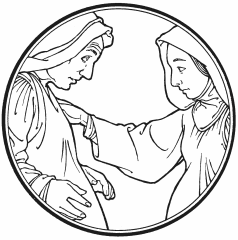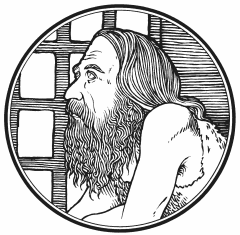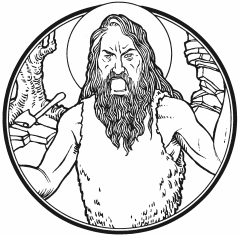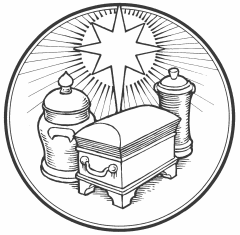 Grace, mercy, and peace to you from God our Father, and from our Lord and Savior, Jesus Christ, amen. The text for the sermon is the Epistle, which was read earlier.
Grace, mercy, and peace to you from God our Father, and from our Lord and Savior, Jesus Christ, amen. The text for the sermon is the Epistle, which was read earlier.
Who doesn’t love a good mystery? I remember when I was in middle school taking our state standardized tests, all I wanted to do was finish the tests so I could pull out another Hardy Boys Mystery from the library. I was so caught up in the middle of everything, wondering what was going to happen on the next page and how everything would play out. The mystery brought excitement and wonder, and being a young teenager, I never walked away disappointed.
But what about mysteries today? Do they still intrigue us? Do they captivate us in a way that only a mystery can? Do we even want to involve ourselves with mysteries? If you are St. Paul, then you are all about mystery, namely the mystery of God.
As Paul writes his letter to the Ephesian church, he speaks of many things. First, he makes mention that he is a prisoner. Not only was Paul an actual prisoner in jail, he was “a prisoner for Christ Jesus on behalf of [the] Gentiles.” Notice what Paul says there. He is a prisoner on their behalf. Paul wasn’t preaching and teaching for his own benefit; he was preaching and teaching for the benefit of his audience, in this case, the Ephesians. This was a church that was in full need of God’s grace and mercy and Paul sought to bring that saving grace and mercy to them, just as he was in full need of God’s saving grace and mercy.
In order to do so, he was given insight into the mystery of Christ. Just what does Paul mean here regarding the mystery of Christ? He is not speaking of something that is mysterious in the sense of being vague, murky, or hard to understand, but rather, something that needs to be explained. After it has been explained, it’s perfectly clear, but one would never have stumbled onto it without some outside help. Paul indicates that he received such help from God by revelation. Paul says rather clearly what the mystery is: “This mystery is that the Gentiles are fellow heirs, members of the same body, and partakers of the promise in Christ Jesus through the gospel.” It means that they are included in God’s saving grace and mercy!
What a wonderful thing for a person to hear, that they have been included in God’s saving grace and mercy. What relief that fact should bring to a person, knowing that God has forgiven you all of your sins on account of Jesus Christ. That is the message that Paul was bringing to the Ephesians and that is the message that Paul brings to you today.
Today we celebrate the Epiphany of Our Lord; we celebrate His being revealed to the Gentiles, that they would become God’s children by grace. We also celebrate His being revealed to us, that we would become God’s children by grace.
According to Matthew’s Gospel, God chose to reveal Jesus to the wise men via a star to follow, leading them to the Child. For St. Paul, he was intent on making sure that the churches to whom he visited or wrote to knew of “the unsearchable riches of Christ.” St. Paul understood well that salvation in Christ means wealth beyond compare or comprehension. No one can put a dollar sign on the riches that come to us in the Gospel. The riches are also unsearchable in that no human mind could ever have contrived God’s gracious plan of salvation. No one and nothing in all of God’s creation could reveal to us the eternal treasure of unconditional forgiveness of sins. Only the Creator of all things could reveal this wealth to us.
It is Paul’s privilege and passion to make plain to everyone that the sins of the world are taken away in Christ. Unlike the sweepstakes offer which tells us we may have already won, he announces that we have already won through the Savior.
For the Church today, God reveals Jesus to us in His means of grace: His Word and His Sacraments. This is where He promised that He would be found. However, for many, that’s not where they want to find Jesus. They want to find Jesus on the lake, in prosperity preaching, the promise of being good and receiving God’s good grace. That is why the Word of God is so important.
We cannot live as the people of God unless He has been revealed, that is, preached to us. Without His Word and Sacraments, not only would our Lord remain unrevealed to us, but His gifts of forgiveness, life, and salvation also would not have been given to us. Without faith in Christ, we would forever be unable to comprehend this mystery. Even with faith in Him, we are still unable to comprehend the mystery of the Incarnation. We finite creatures cannot comprehend an infinite God becoming true Man, coming hidden in a finite form. We are unable to understand how a virgin can conceive and bear a Son. We cannot begin to fathom how one who was crucified and dead can come back to life.
There is more to Epiphany than a lovely story though of wise men, of a great Old Testament prophecy fulfilled and of an energetic appeal of Paul to the Ephesians. Epiphany is not just to be remembered in the past tense. Epiphany is a present now.
Epiphany is now, even as Christ is now. He continues to come to His Church, to feed her with His precious Word and His saving body and blood. He continues to come to save and forgive His people. He continues to bring people to the cross as their Savior from sin. This is the message that St. Paul came preaching and this is the same message that is preached to the Church today. This is what the Church needs to hear; this is what you need to hear.
Now that the mystery has fully been revealed, we see that the whole message of Scripture was always about Jesus. Everything of the Old Testament pointed to Christ. The New Testament is all about the saving work of Christ. Paul, as a called apostle of Jesus Christ, was tasked with bringing this message of salvation to both Jew and Gentile alike. The salvation that God had promised Adam and Eve of so long ago was not meant solely for them, nor was it meant solely for the Jew. God intended this salvation to be for all peoples, regardless of who they are. This salvation that God grants on account of Jesus has been credited to you.
While we may not know all the ins and outs of this mystery, one thing of this mystery is clear: on account of Jesus Christ and His saving work, we have the forgiveness of our sins, case closed. In the name of Jesus, amen. Now the peace of God that passes all understanding, keep your hearts and minds through faith in Christ Jesus, amen.
